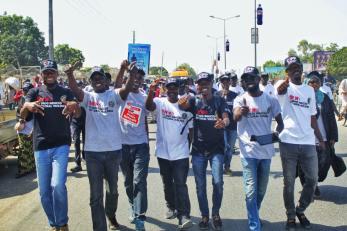Harnessing youth-led research to prevent violence in northwest Nigeria

Violence in Northwest Nigeria, particularly in Zamfara state has been traced to disputes between Fulani pastoralists and Hausa farmers over access to lands and water resources in rural areas of the state. The violence which began in Zamfara state has since spilled over to the neighboring states of Kaduna and Katsina.
Young men represent not only the majority of perpetrators of violence, but also the primary victims, as gangs undertake retaliatory attacks or target young men as presumed members. Meanwhile, young women face gender-based violence and torture and are often widowed, left as the sole breadwinners for their families.
Despite the significant effects of the violence on young men and women, young people are rarely consulted on possible solutions to the violence. Against this backdrop, Mercy Corps’ Community Initiatives to Promote Peace (CIPP) program, funded by the United States Agency for International Development (USAID), has undertaken the youth-led action research and response (YLARR) initiative aimed at engaging youth to examine root causes, drivers and enablers of violence, including youth perceptions of marginalization; engaging youth to identify factors that prevent involvement in violence; and engaging youth to proffer community-driven solutions and strategies to counter violence.
This report summarizes the key findings from the youth-led research, focusing on the causes and effects of each type of violence identified by the youth researchers, as well as proposed youth initiatives and other solutions identified during the research.
The report concludes by highlighting a recommended set of youth-led initiatives that can be implemented by the youth researchers and their broader communities, along with recommendations to state and local governments and donors about how to support an enabling environment for positive youth-led initiatives and future participatory research interventions.